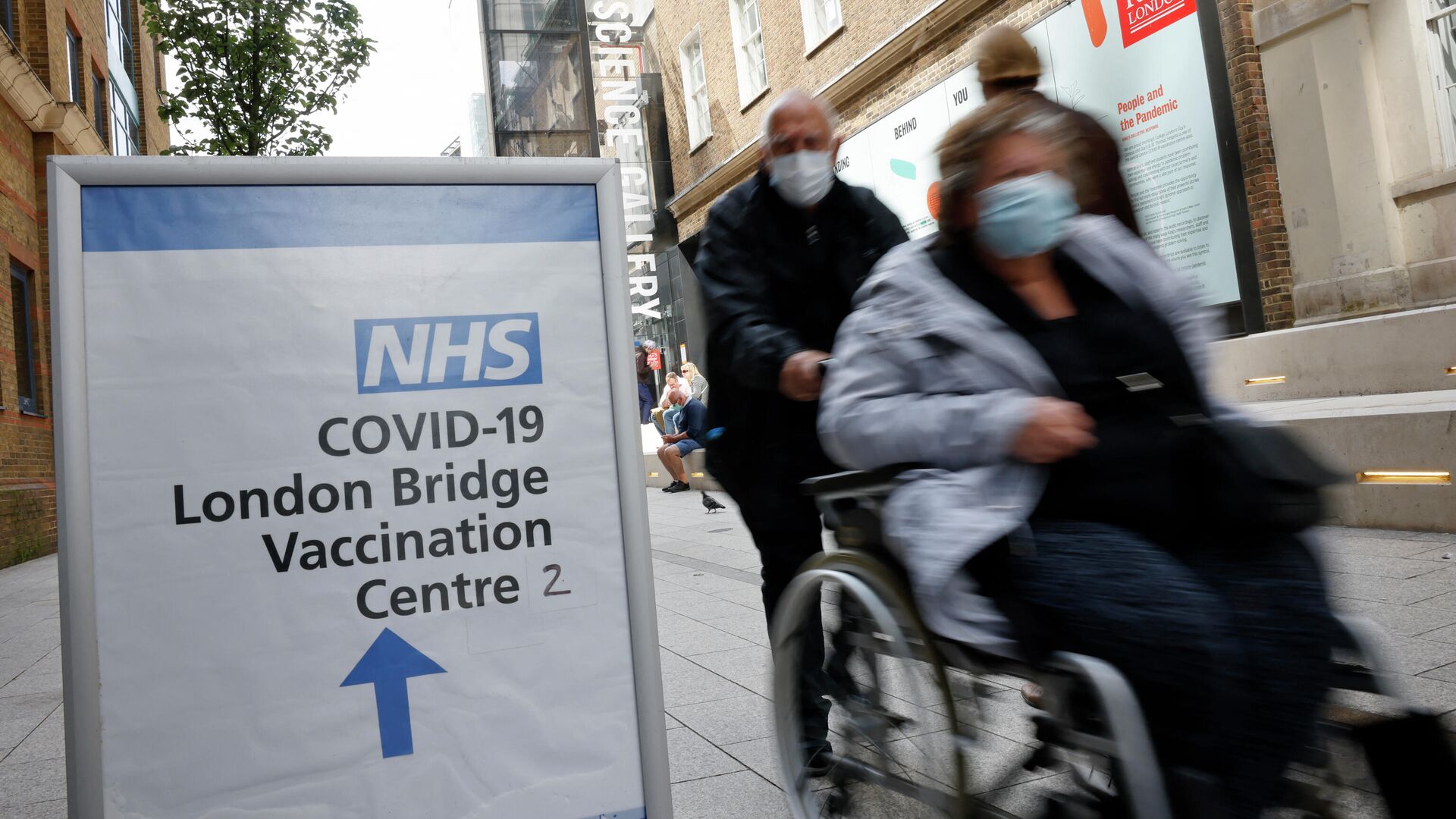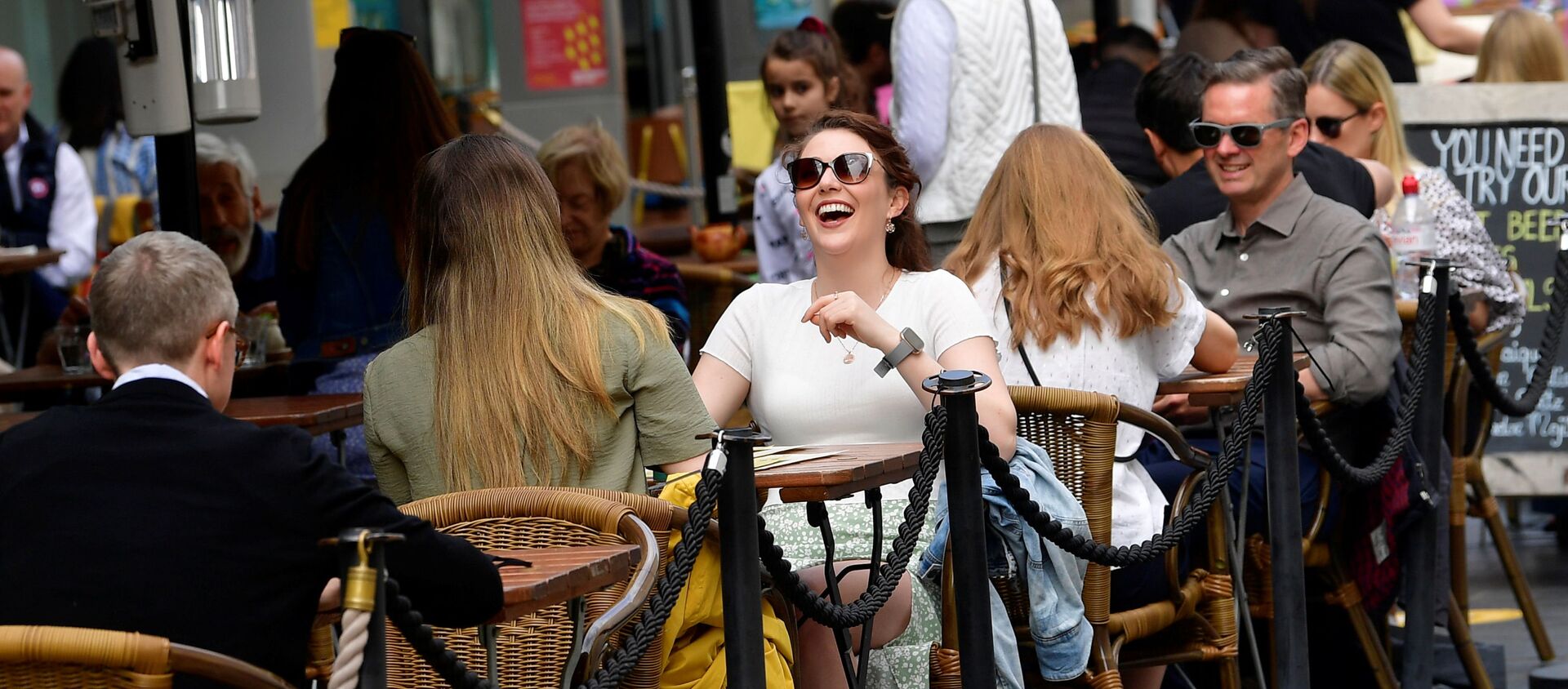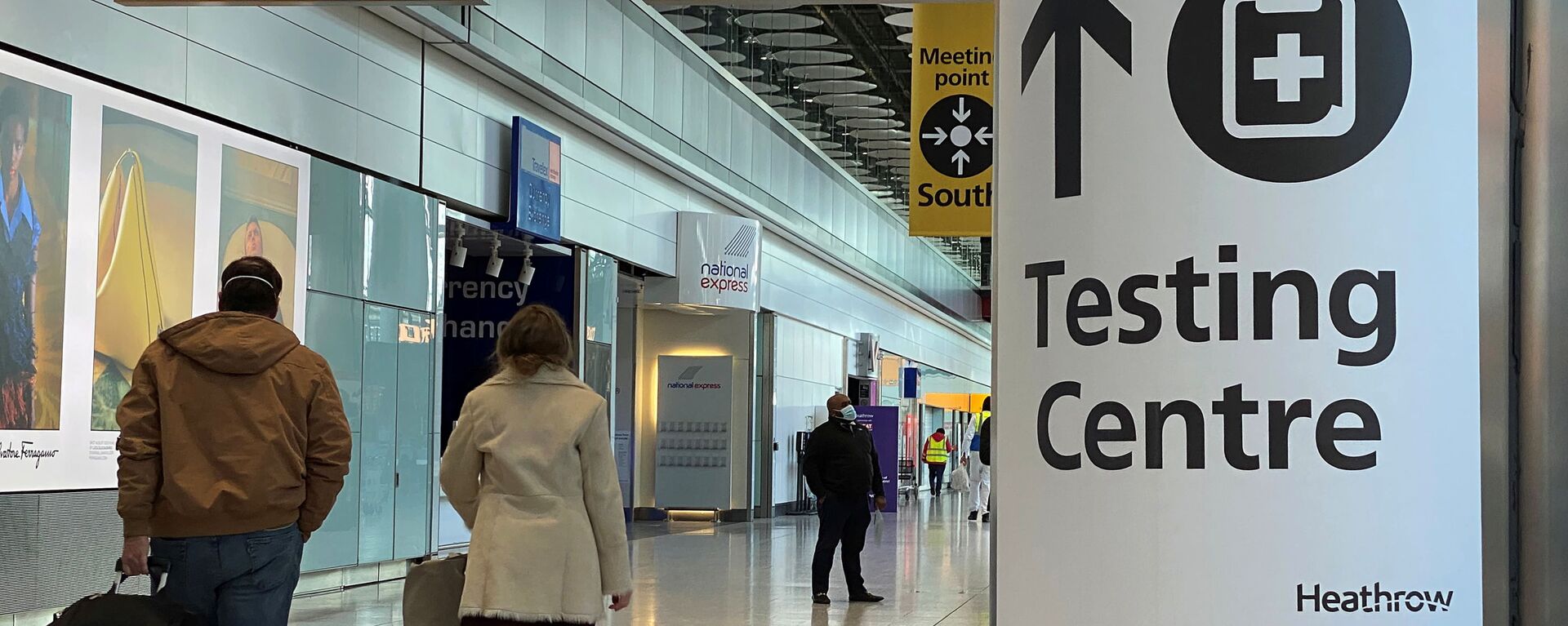https://sputnikglobe.com/20211012/uk-mps-inquiry-thousands-of-deaths-could-have-been-avoided-during-covid-pandemic-1089852102.html
UK MPs' Inquiry: Thousands of Deaths 'Could Have Been Avoided' During COVID Pandemic
UK MPs' Inquiry: Thousands of Deaths 'Could Have Been Avoided' During COVID Pandemic
Sputnik International
The coronavirus continues to take its toll on Britain, with 8,154,310 confirmed cases and 137,735 deaths, according to the World Health Organisation's latest... 12.10.2021, Sputnik International
2021-10-12T06:12+0000
2021-10-12T06:12+0000
2023-05-28T15:16+0000
boris johnson
national health service (nhs)
pandemic
vaccination
report
coronavirus
covid-19
united kingdom (uk)
https://cdn1.img.sputnikglobe.com/img/07e5/0a/0c/1089851945_0:160:3073:1888_1920x0_80_0_0_a2247204e047c873950e28af6bdf826c.jpg
UK government ministers and their scientific advisers made "serious errors" at the start of the COVID-19 pandemic in March 2020, which "cost thousands of lives", a new parliamentary report has revealed.The "lessons learned to date" report was prepared by parliament's Science and Technology Committee as well as the Health and Social Care Committee, who argued that the delay to impose a first lockdown last spring was "one of the most important public health failures the United Kingdom has ever experienced".The document asserted that the government's plan to fight the coronavirus pandemic was based too much on influenza and so-called "groupthink" among public health officials, which meant that early opportunities to delay the spread of COVID were missed.The "slow, uncertain, and often chaotic performance of the test, trace, and isolate system severely hampered the UK's response to the pandemic", the MPs claimed.According to their report, the government adhered to a "policy approach of fatalism about the prospects for COVID in the community", with scientific advisers and ministers seeking to "only moderate the speed of infection" through the population – rather than trying seeking to stop the spread of the disease.The MPs insisted that London's policy of "seeking to manage, but not suppress" the infection "amounted in practice to accepting that herd immunity by infection was the inevitable outcome".Additionally, the study asserted that discharging people from hospitals into care homes "led to many thousands of deaths", and that there were "serious deficiencies" in communication between central and local governments.At the same time, the lawmakers praised the government's attitude towards vaccination, arguing in the report that ministers were "correct to identify that a vaccine would be the long-term route out of the pandemic".The MPs also applauded the National Health Service (NHS)'s ability to respond to the challeges posed by COVID and the rapid deployment of NHS Nightingale temporary hospitals.The report comes a few months after Prime Minister Boris Johnson announced a number of new "freedoms" to lift the last (Stage Four) of the pandemic restrictions and "reopen our society", stressing the effectiveness of the country's COVID-19 vaccination programme and the harms of the lockdown.As of 19 July, all restrictions on numbers at indoor and outdoor gatherings were lifted, and all businesses, including nightclubs were allowed to reopen. Crucially for the hospitality industry, the one-metre social distancing rule and requirements for table service only at pubs and cafes were scrapped, as were the restrictions on singing in groups.
https://sputnikglobe.com/20210602/uk-records-zero-covid-deaths-since-start-of-pandemic-in-major-milestone-amid-warnings-of-third-wave-1083054411.html
https://sputnikglobe.com/20210726/london-heathrow-airport-chief-urges-uk-govt-to-open-up-borders-to-fully-vaccinated-1083464164.html
united kingdom (uk)
Sputnik International
feedback@sputniknews.com
+74956456601
MIA „Rossiya Segodnya“
2021
Oleg Burunov
https://cdn1.img.sputnikglobe.com/img/07e4/09/0b/1080424846_0:0:2048:2048_100x100_80_0_0_3d7b461f8a98586fa3fe739930816aea.jpg
Oleg Burunov
https://cdn1.img.sputnikglobe.com/img/07e4/09/0b/1080424846_0:0:2048:2048_100x100_80_0_0_3d7b461f8a98586fa3fe739930816aea.jpg
News
en_EN
Sputnik International
feedback@sputniknews.com
+74956456601
MIA „Rossiya Segodnya“
Sputnik International
feedback@sputniknews.com
+74956456601
MIA „Rossiya Segodnya“
Oleg Burunov
https://cdn1.img.sputnikglobe.com/img/07e4/09/0b/1080424846_0:0:2048:2048_100x100_80_0_0_3d7b461f8a98586fa3fe739930816aea.jpg
boris johnson, national health service (nhs), pandemic, vaccination, report, coronavirus, covid-19, united kingdom (uk)
boris johnson, national health service (nhs), pandemic, vaccination, report, coronavirus, covid-19, united kingdom (uk)
UK MPs' Inquiry: Thousands of Deaths 'Could Have Been Avoided' During COVID Pandemic
06:12 GMT 12.10.2021 (Updated: 15:16 GMT 28.05.2023) The coronavirus continues to take its toll on Britain, with 8,154,310 confirmed cases and 137,735 deaths, according to the World Health Organisation's latest estimates.
UK government ministers and their scientific advisers made "serious errors" at
the start of the COVID-19 pandemic in March 2020, which "cost thousands of lives", a new parliamentary report has revealed.
The "lessons learned to date" report was prepared by parliament's Science and Technology Committee as well as the Health and Social Care Committee, who argued that the delay to impose a first lockdown last spring was "one of the most important public health failures the United Kingdom has ever experienced".
The document asserted that the government's plan to fight the coronavirus pandemic was based too much on influenza and so-called "groupthink" among public health officials, which meant that early opportunities to delay the spread of COVID were missed.
Lawmakers claimed that if introduced, earlier measures on social distancing and locking down "would have bought much-needed time" for coronavirus vaccine research as well as the development of COVID treatments and a proper test and trace system, meaning that thousands of deaths "could have been avoided" during the pandemic, the report claimed.
The "slow, uncertain, and often chaotic performance of the test, trace, and isolate system severely hampered the UK's response to the pandemic", the MPs claimed.
According to their report, the government adhered to a "policy approach of fatalism about the prospects for COVID in the community", with scientific advisers and ministers seeking to "only moderate the speed of infection" through the population – rather than trying seeking to stop the spread of the disease.
The MPs insisted that London's policy of "seeking to manage, but not suppress" the infection "amounted in practice to accepting that herd immunity by infection was the inevitable outcome".
"The policy was pursued until 23 March [2020] because of the official scientific advice the government received, not in spite of it", the report pointed out, insisting that the government's "initial unwillingness to consider seriously and act on the approach being taken in Taiwan, Singapore, or Korea was a serious error".
Additionally, the study asserted that discharging people from hospitals into care homes "led to many thousands of deaths", and that there were "serious deficiencies" in communication between central and local governments.
At the same time, the lawmakers praised the government's attitude towards vaccination, arguing in the report that ministers were "correct to identify that a vaccine would be the long-term route out of the pandemic".
The MPs also applauded the National Health Service (NHS)'s ability to respond to the challeges posed by COVID and the rapid deployment of NHS Nightingale temporary hospitals.
Shadow Health Secretary Jonathan Ashworth described the document as "a damning report by a cross-party group of MPs into the monumental errors made by ministers in responding to the pandemic".
The report comes a few months after
Prime Minister Boris Johnson announced a number of new "freedoms" to lift the last (Stage Four) of the pandemic restrictions and "reopen our society", stressing the effectiveness of the country's COVID-19 vaccination programme and the harms of the lockdown.
As of 19 July, all restrictions on numbers at indoor and outdoor gatherings were lifted, and all businesses, including nightclubs were allowed to reopen. Crucially for the hospitality industry, the one-metre social distancing rule and requirements for table service only at pubs and cafes were scrapped, as were the restrictions on singing in groups.




